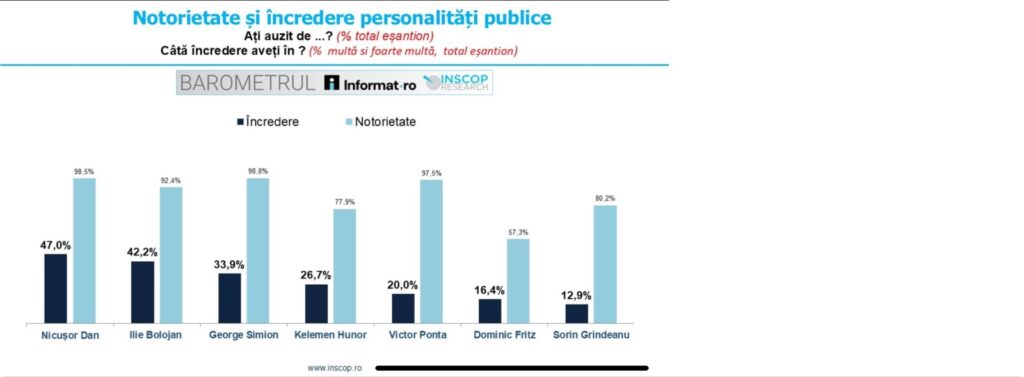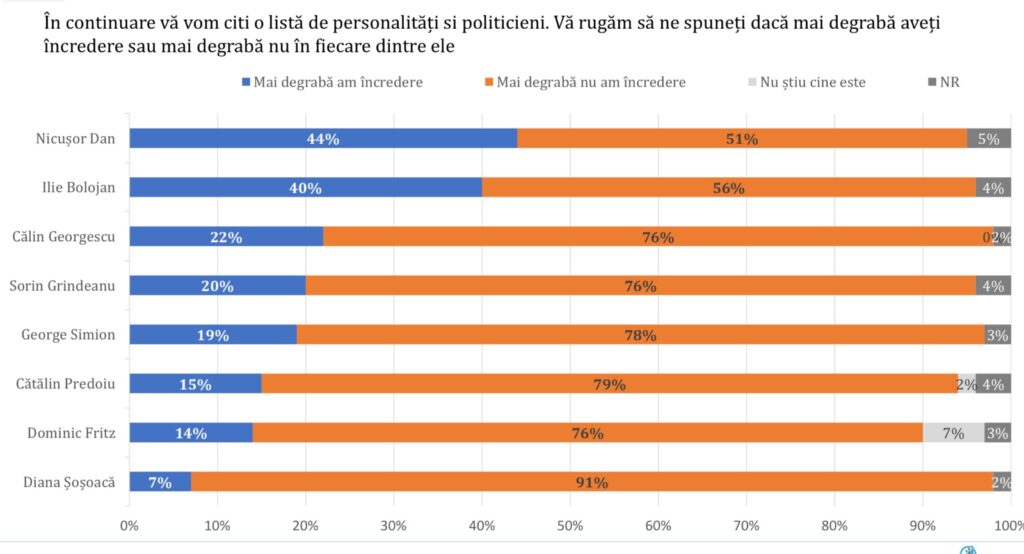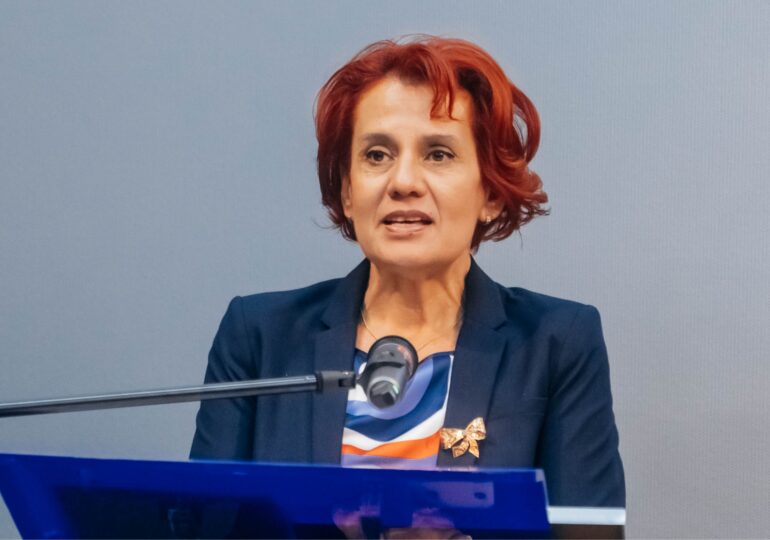The first post-election opinion polls outline, beyond their differences, some extremely relevant elements, starting with a substantial shortening of the post-election honeymoon period, as well as a probable pressure on the current constitutional framework, as it has remained without a supporting pillar since the 2003 revision.
The two polls are INSCOP

And Avangarde

Both were conducted by phone at the end of May, 26-30 May and 23-28 May, respectively.
What should be noted?
1. The trust enjoyed by President Nicușor Dan is by no means as high as it was rumored. There is a trust level below 50% in both polls. A CURS poll from last week placed President Dan at 57%. The average of the three surveys is 49%, thus below the electoral score from May 18. This demonstrates that he was voted for even by individuals who do not trust him personally but feared the alternative, Simion.
A trust level below 50% indicates that the president's honeymoon period could be shorter than that of other presidents who had higher post-election trust scores - Iohannis 60%, Băsescu 63%.
Mr. Dan must start delivering quickly, and to a large extent, the electoral campaign, implicitly the expectations, were not about the president's duties but those of the prime minister.
At the same time, Ilie Bolojan's high trust level, just a few percentage points behind the president, indicates that invoking the liberal leader for the prime minister position mattered greatly in the May 18 result, so there is a solid expectation from Nicușor Dan not only to nominate but to impose Mr. Bolojan as prime minister.
A difficult mission in the current parliamentary configuration, which would entail political costs commensurate with the compensation that PSD will receive for relinquishing the prime minister position. PSD already knows that it is not the one paying the price for prolonging the formation of the new government.
The risky guarantee, under signature, that the VAT will not increase for 5 years could have a cost of trust for the new president. Precisely because his brand is the difference from the traditional political class, whose word cannot be relied upon.
2. Ilie Bolojan is just a few percentage points behind Nicușor Dan, but with lower notoriety. It is not common for a newly elected president to be closely followed by another political leader. This, in the constitutional context, equates to a collision course.
For Mr. Nicușor Dan, Ilie Bolojan will always be immediate political competition. And if the liberal leader becomes prime minister, cohabitation could become challenging.
Two swords do not easily fit in the same sheath, which is why cohabitation only worked when the prime ministers, Văcăroiu and Boc, were submissive and political creations of the president.
On the other hand, it is not enough for two people to be well-intentioned and have correct visions; they also need to have the same pace and methods to achieve the desired outcome.
3. A detailed analysis of the INSCOP poll, conducted by Remus Ștefureac, shows that Romania remains divided. The new president's trust in the AUR area is only 6%. The president's main mission should be to access this hostile area, capture it, and gain its trust.
4. George Simion is declining. And most likely, this decline will continue. Not because he lost, but because he never gave the impression that he wanted to win, and his defeat is largely attributable to some inexplicable errors. Some of them, such as the admitted deception with the €35,000 houses, are unforgettable.
Moreover, on November 24, Mr. Simion barely ranked fourth, below the score obtained by the party a week later. He still thrives on the capital infusion from Călin Georgescu, but with his withdrawal from public life, the "backbone" is melting away.
This does not mean that the nationalist movement is following the same trajectory. It will only be waiting for the future leader, and where there is demand, there will be supply. Whether it grows or diminishes depends greatly on the performance of the future governance, and the prospects are not promising, given the inevitable budget correction measures.
5. The INSCOP poll placed UDMR leader Kelemen Hunor in fourth place in the trust ranking, with 26%, from a notoriety of 77%, substantially lower than the top three ranked individuals.
It is an astonishing achievement, as highlighted by sociologist Sebastian Lăzăroiu.
Mr. Kelemen Hunor now capitalizes on the image he has cultivated for years as a serious, balanced, and elegant leader. All enhanced by the clear dissociation from Viktor Orban regarding his support for George Simion, followed by the Budapest leader's change of mind. At this moment, Mr. Kelemen Hunor is no longer just the leader of the Hungarians but one of Romania's political leaders, he has moved up a league.
Such high trust in the UDMR leader, far beyond the traditional Hungarian electoral base, marks a historic moment. Amidst so many wounds tearing society apart, one is healing, which is essential in the face of the nationalist vein that, at least for a while, will not diminish.

